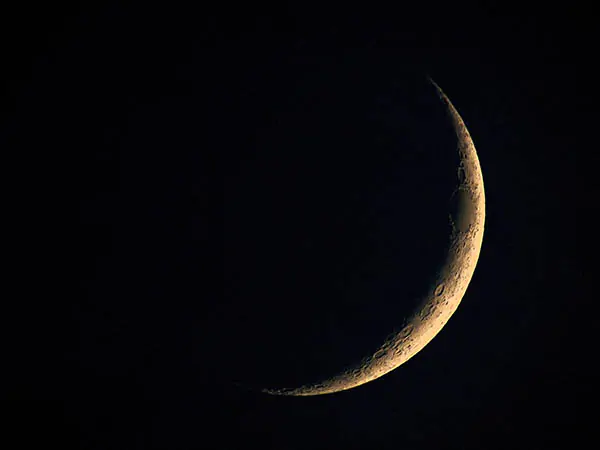Filter by Categories
Holy Days: God's Plan in the Holy Days
Bible Study by StaffGod has a master plan to recreate Himself through human beings within a 7,000-year process, and His holy days reveal specific steps in this deliberate order to build children in His image. Leviticus 23 lists the festivals and holy days He gave His people, summarizing this detailed plan. The weekly Sabbath, the first holy day God commands us to keep, reminds us of His purpose. God has us observe these holy days in their seasons each year so that we never forget His plan for mankind and pass it from generation to generation. The holy days outline God's entire plan, beginning with repentance and forgiveness, as seen in the changed symbols of Passover to bread and wine, and Unleavened Bread representing sin in our lives. Pentecost signifies the founding of the New Testament church and the giving of His Holy Spirit, marking the early harvest of His firstfruits. The Feast of Trumpets follows, depicting Christ's return at the last trumpet to gather His elect, both living and dead, into His Kingdom to rule with Him for a thousand years. The Feast of Tabernacles represents the time of peace and prosperity in the Millennium, during which those alive and children born then can be saved. The Last Great Day foreshadows the Great White Throne Judgment, a period when those who died in ignorance are resurrected to physical life to learn and accept God's way. God gives us His feast days that we might remember His plan and qualify for a better resurrection.

Does Paul Condemn Observing God's Holy Days?
'Ready Answer' by Earl L. HennThrough the centuries, many arguments have been devised to dismiss the observance of God's holy days, despite their clear designation as holy to Him in His law. Some claim that certain New Testament scriptures, such as Galatians 4:9-10, negate the need for Christians to keep these days. In this passage, Paul expresses frustration with the Galatians for returning to certain religious practices, calling them weak and beggarly elements and warning against renewed bondage to them. He specifies these practices as observances of days, months, seasons, and years. However, Paul nowhere in his letter mentions God's holy days as the practices in question. Instead, evidence suggests these observances were the pagan, idolatrous festivals and holidays the Galatian Gentiles had followed before their conversion, rooted in demon-inspired traditions rather than God's commands. Far from abolishing God's holy days, these scriptures emphasize that Christians should avoid days, months, seasons, and years tied to paganism and instead observe the holy days commanded by God, rejoicing in them as they follow the example of Jesus Christ.
Are God's Holy Days To Be Kept Today?
Sermon/Bible Study by Martin G. CollinsGod's annual holy days are of vital importance, revealing a broad spectrum of understanding of His truth. People who do not keep these holy feasts remain in ignorance and confusion about His plan of salvation for mankind. These feasts, detailed in Exodus 12 and Leviticus 23, include Passover, the Days of Unleavened Bread, Pentecost, the Feast of Trumpets, the Day of Atonement, the Feast of Tabernacles, and the Last Great Day. They are not merely Jewish observances but are God's holy days, rooted in both the Old and New Testaments. These holy days were observed by Jesus Christ in the New Testament church, and true Christians are commanded to observe them today. Despite attacks from satan to cloud, distort, and pervert these feasts, their observance persisted among early Christians, even under persecution. Historical pressures, including anti-Jewish bias after Jewish revolts against Rome and decrees from figures like Emperor Constantine, led many to abandon these days, yet remnants of God's church continued to keep them. Jesus Christ, from childhood, faithfully kept the Passover and the Days of Unleavened Bread, as recorded in Luke 2:41-43. During His ministry, He did not annul these feasts but upheld them, commanding His disciples to observe the Passover with new symbols of bread and wine, as seen in Luke 22:14-20. He also observed the Feast of Tabernacles, attending in secret and preaching powerfully, as noted in John's gospel, demonstrating their importance for the New Testament church. The early church, including Paul, actively kept these holy days, referencing them in teachings to Gentile converts, as evidenced in Acts 20 and I Corinthians 5:6-7. Paul urged the Corinthians to keep the feast, emphasizing Christ as their Passover. The book of Acts documents the church observing Pentecost, the Days of Unleavened Bread, and other festivals, showing their continued relevance. God's seven annual holy days are in force now, essential for understanding His plan of salvation. They picture different periods in spiritual creation and mark the stewardship of His truth. The Gospels, Acts, and the epistles reiterate their observance, with Christ setting the example for His church to follow. Failing to keep these days leads to a loss of true worship and knowledge of God, as seen historically with ancient Israel. These feasts are commanded to be kept forever, impressing the truths they represent on the minds of God's children through all time, maintaining the church in the true understanding of His redemptive plan.

Holy Days: Feast of Tabernacles
Bible Study by Richard T. RitenbaughIn the unfolding of God's plan, the holy days reveal the process of salvation and significant future events. The spring festivals lead to the Feast of Trumpets, which pictures Christ returning to earth in power to crush satan's final attempt to dominate the world. Saints from all ages will be resurrected or, if alive, changed to immortality, marking the first time man will be fully united with his Creator. The Feast of Tabernacles represents the Millennium, a time when the whole earth will rest under Christ's rule. During the Millennium, as pictured by the Feast of Tabernacles, survivors of all nations will be gathered, and Christ will appoint the resurrected saints to rule over them. People will be required to go to Jerusalem for the Feast of Tabernacles to worship the King, Jesus Christ. This observance will serve as their primary reminder of their place in God's plan and the need to secure their salvation. If they refuse to keep the Feast, they demonstrate a rejection of Christ's sovereignty and His purpose, facing consequences such as the withholding of rain until they submit.

Are the Sabbath and Holy Days Done Away?
'Ready Answer' by Earl L. HennFor centuries, people have sought to argue that Christians are not required to observe the Sabbath and holy days. In Colossians 2:16-17, Paul addresses this issue, urging the Colossians not to let anyone judge them regarding what they eat or drink, or in respect to the Sabbath and holy days. He emphasizes that these days are shadows of future events in the plan of God, with the Sabbath symbolizing the Millennium when Jesus Christ and the saints will rule for a thousand years, and the holy days representing various steps in God's purpose for creating mankind. Paul encourages the Colossians to focus on the example set by the church, the body of Christ, in their worship on these days, rather than being concerned about the opinions of the surrounding ascetic community influenced by pagan philosophies.

Holy Days: Passover
Bible Study by Earl L. HennGod reveals His plan of salvation for mankind through His commanded holy days, with the first step shown in the observance of the Passover. The annual keeping of the Passover reminds us of this initial step in fulfilling God's plan. When God called the children of Israel out of Egypt, He had to show them when His year began so they could observe His holy days, symbolizing God calling us out of this evil world. Passover is one of God's festivals, a feast of the LORD, instituted by Him and commanded to be kept. God instructed each Israelite family to choose an unblemished lamb on the 10th day of the month Abib, kill it on the 14th day at twilight, and put its blood on the doorposts and lintels of their homes as a sign for the death angel to pass over, saving Israel's firstborn. Jesus Christ observed the Passover during His life on earth, setting a perfect example for us to follow. New Testament Christians are commanded to keep the Passover as a memorial of the death of Christ, our Passover, who was sacrificed for us. Jesus taught His disciples to wash one another's feet during the Passover meal, showing humility and service, and to partake of unleavened bread and wine as a memorial of His death. Converted Christians must observe the New Testament Passover every year, as it is vital for inheriting eternal life. The New Testament church of God continued to keep the Passover yearly, and the apostles taught the Gentiles to observe it with the symbols of bread and wine, a practice to be kept until He returns.
Holy Days: Pentecost
Bible Study by Earl L. HennAs we explore the significance of God's holy days, a clear pattern emerges, revealing truths hidden from most of the world. God established His holy days around the two major harvests of the year, a smaller one in the spring and a larger one in the fall, typifying two spiritual harvests. Pentecost, occurring in late spring, symbolizes the first spiritual harvest and indicates that this is not the only period of salvation. Those whom God calls now are a select pilot group, His firstfruits, chosen to develop His holy, perfect, spiritual character. God commanded Israel to appear before Him during three periods of the year when His holy days fall: early spring for Passover and Unleavened Bread, late spring for the Feast of Harvest, which is Pentecost, and fall for the Feast of Ingathering. Before the spring harvest could begin, God instructed the Israelites to bring a sheaf of grain to the priest to be waved before Him for acceptance, an offering made on the day after the weekly Sabbath during the Feast of Unleavened Bread. Pentecost, also called the Feast of Weeks, is determined by counting fifty days from the day of the wavesheaf offering, always falling on the first day of the week. On Pentecost, God commanded a special offering of two loaves of bread as firstfruits to Him. This day, known as the Feast of Firstfruits, represents the first part of God's spiritual harvest, where He calls a small number of people into His church. The fifty days between the wavesheaf offering and Pentecost symbolize the time from the founding of the church to the end of the age, when the small harvest of the firstfruits occurs. Pentecost also marks the anniversary of God's church, the start of His master plan to call people out of this evil world. On the Day of Pentecost, fifty days after Christ ascended to be accepted by the Father, the Holy Spirit came to the disciples, marking the beginning of the church of God. About twenty-five years after Christ's ascension, Paul hurried to be in Jerusalem for Pentecost, showing that the early church continued to observe this day. The true church of God keeps Pentecost annually as a reminder of our role in God's great master plan.
The Spring Holy Days
Sermonette by Ryan McClureWe need to probe into the deeper meaning of the Spring holy days more than we have previously because God's wisdom is unsearchable.

'After Three Days'
Booklet by Richard T. RitenbaughA scriptural explanation of the time of Christ's death, burial and resurrection, showing that He died on a Wednesday and rose from the dead on the Sabbath.
Appointments
Sermon by Clyde FinkleaGod established the weekly Sabbath on the seventh day of Creation; He established His Holy Days (moedim) on the fourth day. These are His appointments.

The New Moons
'Personal' from John W. RitenbaughA concise explanation of what the Bible says about New Moons and what that means to us today — what it means to 'observe' the New Moons.

'Tis the Season: Help for Our Young People
Article by StaffAs another Christmas season approaches, many in God's church, including our children, dread having to endure it. We can help them understand God's way.
Tithing: Second Tithe
Bible Study by Martin G. CollinsGod commands us to keep His feasts and holy days, and He also makes funds available for us to do so—by saving second tithe.

Sharing Our Lives at the Feast
Article by Mark SchindlerThe Feast of Tabernacles is a wonderful gift God has given us to spend time with each other, really sharing of ourselves. Here is how this can be done.
The Cancerous Calendar Controversy
Article by John W. RitenbaughWhich calendar should be used to set God's holy days? No subject, unless it is church government, has divided more people for as long a period of time.
Prove All Things - Again
Sermonette by Ryan McClureGod's called-out ones must not stop testing, retesting, proving, and reproving all things, even though we may think they have proved everything already.
Pentecost and Time
Sermon by Richard T. RitenbaughBecause of our 'time-bound' state, unless we sync with God's timetable, we are squandering our God-given time to become members of His family.
Chronic Difficulties
Sermon by Richard T. RitenbaughHuman tradition and Bible truth regarding the timing of Christ's crucifixion and resurrection do not square. Here is the overwhelming chronological evidence.
Why Are We Here?
Sermon by John W. RitenbaughJesus Christ's and Paul's example in Sabbath observance (including the annual Sabbaths) provide a model as to how we keep the Sabbath and the holy days.
Faith and the Calendar (Part One)
Sermon by John W. RitenbaughThe issue is not mathematical or astronomical, but instead a matter of trust in God's faithfulness, authority, sovereignty, oversight, or ability to govern.
The Covenants, Grace, and Law (Part Twenty-Three)
Sermon by John W. RitenbaughIn Colossians 2:16 and Galatians 4:9-10, Paul was warning against mixing Gnostic asceticism and pagan customs with the keeping of God's Sabbath and Holy Days.